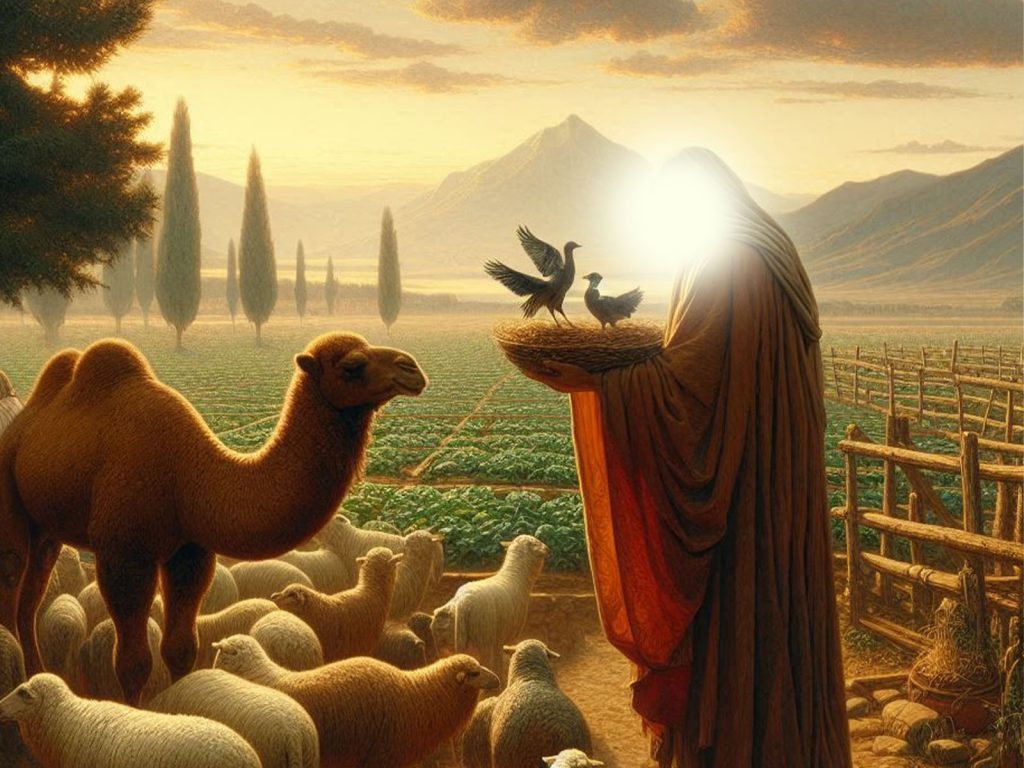The Gratitude of Prophet Muhammad (peace be upon him)
Expressing gratitude to the Giver of blessings and appreciating the deeds of benefactors is so virtuous and beloved that the Holy Qur’an refers to “Shākir” and “Shakūr” (the Appreciative) as among the names of Allah, stating: “Allah will reward those who are grateful.” [1]
The Noble Prophet of Islam (peace be upon him) embodied this Qur’anic teaching, stating:
“He who does not thank people for their kindness has not thanked Allah.” [2]
Historians generally record that the Prophet (peace be upon him) lived among the tribe of Banu Sa‘d until the age of five. Halimah, his foster mother, returned him to his biological mother, Amina, and entrusted him to her care. However, the Prophet (peace be upon him) continued to fondly recall that time and express gratitude toward Halimah and her family throughout his life. [3]
It is narrated that Halimah, after the Prophet (peace be upon him) had married Khadijah, came to Mecca and complained to him about a drought and the loss of her livestock. The Prophet (peace be upon him) discussed her situation with Khadijah, who generously gave her forty sheep and a camel. Halimah returned to her tribe with significant wealth. Later, after the emergence of Islam and the Prophet’s declaration of his prophethood, she visited Mecca again, embraced Islam alongside her husband, and became a Muslim.
It is also narrated that during the Battle of Hunayn, Halimah visited the Prophet at Ji‘rāna. In respect for her, the Prophet (peace be upon him) stood up, spread his cloak, and invited her to sit on it.
Similarly, during the siege of Tā’if, the Prophet’s foster sister, Shaymā’, was captured by Muslim soldiers. When she introduced herself as the foster sister of their leader, she was brought to the Prophet (peace be upon him). He asked for proof of her claim, and she provided a sign that confirmed her identity. Recognizing her, the Prophet spread his cloak for her as well, invited her to sit, and was moved to tears. He then said:
“If you wish, you may return to your tribe, or if you prefer, you may remain with us in honor and affection.”
Shaymā’ expressed her desire to return to her tribe, but first embraced Islam. The Prophet (peace be upon him) gifted her sheep and camels and ensured her safe return.
Through his respectful treatment of Shaymā’, the Prophet (peace be upon him) expressed his deep gratitude and appreciation for Halimah, who had cared for him as a child.
This account highlights the profound gratitude and appreciation shown by the Prophet Muhammad (peace be upon him) in his interactions.
(Adapted from “The Life of Prophet Muhammad (peace be upon him)” by Sayyid Hashim Rasouli Mahallati)
Footnotes:
[1] Surah Aal-e-Imran, Verse 144
[2] Al-Faqih, Vol. 2, Page 343
[3] Surrounding regions of Mecca often experienced drought due to their geographical conditions. It was a tradition for rural tribes to come to Mecca and take the children of noble families to raise them in the desert, benefiting from pure air, healthy development, and learning authentic Arabic. (Furugh Abadiyat, by Jafar Subhani, Vol. 1, Page 159)
[4] A foster sibling refers to a child who becomes a sibling through breastfeeding under specific conditions.


